March 7, 2025 | 23:00 GMT +7
March 7, 2025 | 23:00 GMT +7
Hotline: 0913.378.918
March 7, 2025 | 23:00 GMT +7
Hotline: 0913.378.918
Manuela V. Ferro, World Bank Regional Vice President for East Asia and Pacific, visited New Green Farm Cooperative on November 19. Her delegation was accompanied by Nguyen Ngoc He, Vice Chairman of the Can Tho City People's Committee; Cao Duc Phat, Chairman of the Board of Trustees of the International Rice Research Institute (IRRI); and representatives from relevant agencies and organizations.
During the visit, Manuela V. Ferro examined the high-quality, low-emission rice production model and the organic fertilizer production techniques utilizing rice straw employed by the New Green Farm Cooperative in Tan Hung Ward, Thot Not District, Can Tho City.
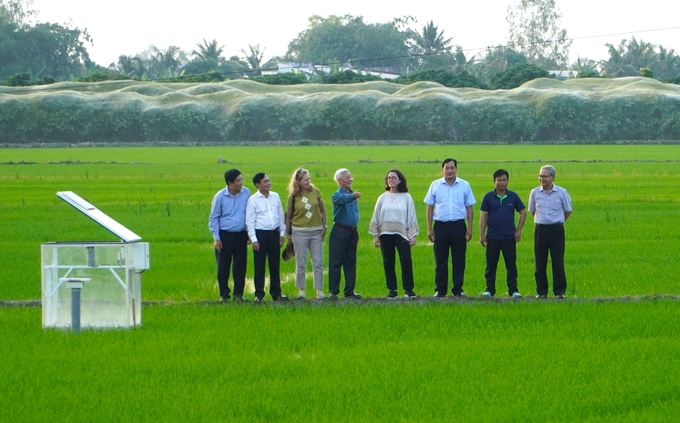
Manuela V. Ferro, accompanied by leaders of Can Tho City, the International Rice Research Institute (IRRI), and representatives of the business community, examining the high-quality, low-emission rice production model. Photo: Kim Anh.
During her visit, Ferro also met with local farmers, cooperative leaders, and representatives of the business community. Subsequently, they discussed the production and trading activities of the rice industry in the Mekong Delta region, focusing on Can Tho City.
In an interview with the press, Ferro expressed her pleasure in visiting the Mekong Delta region, a global pioneer in implementing the "Sustainable Development Project for one million hectares of specialized, low-emission, high-quality rice in association with green growth in the Mekong Delta region by 2030."
The World Bank’s Vice President for East Asia and the Pacific highlighted the success of the tripartite collaboration between the Vietnamese government, the World Bank, and IRRI in enabling farmers in the Mekong Delta region to adopt advanced technologies through the VnSAT project.
This partnership, she noted, has allowed farmers to reduce production costs and increase incomes by lowering seed, fertilizer, and pesticide usage while conserving water and labor resources.
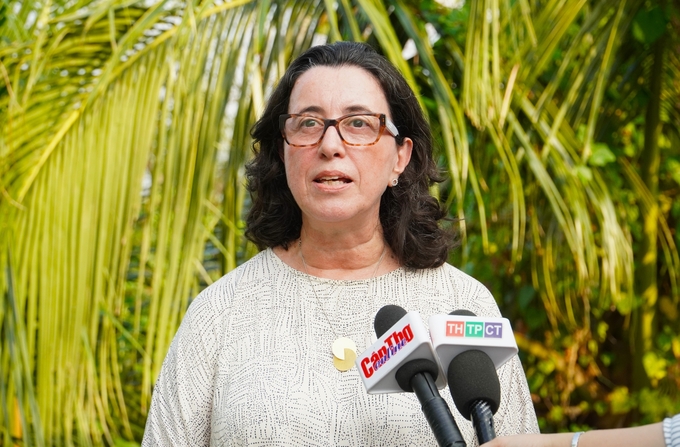
Manuela V. Ferro, World Bank Regional Vice President for East Asia and Pacific, sharing her thoughts with the press on the sidelines of the event. Photo: Kim Anh.
"The technology applied under the VnSAT Project has produced positive and tangible results for all stakeholders. Furthermore, the Project has the potential for expansion to other regions. Consequently, the Vietnamese government has utilized the project's results to launch the Sustainable Development Project for one million hectares of specialized, low-emission, high-quality rice. I see this as a great opportunity for all Vietnamese citizens, particularly farmers in the Mekong Delta," Ferro highlighted.
On behalf of the World Bank, Ferro affirmed the institution’s readiness to collaborate and support the Vietnamese government in implementing the initiative.
Notably, the World Bank has closely coordinated with local governments in Can Tho City for over ten years and implemented various programs and projects. After her visit to the New Green Farm Cooperative—a model supported by the VnSAT Project—Ferro expressed confidence that similar models are a possibility across the Mekong Delta. Accordingly, they can improve livelihoods and enhance the quality of life for farmers in the region.
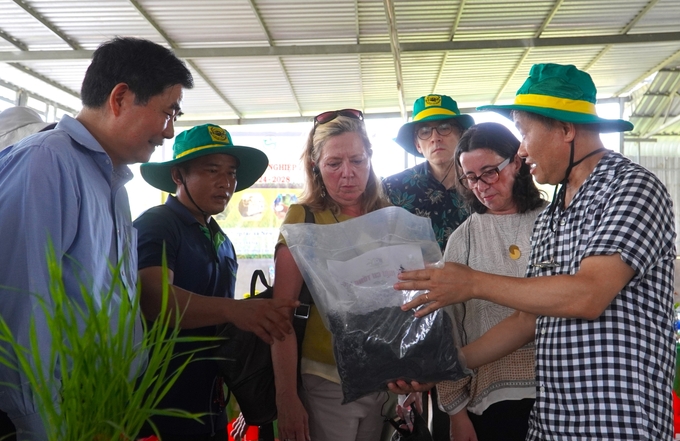
The high-quality rice production model, which repurposes post-harvest rice straw into organic fertilizer at the New Green Farm Cooperative, has attracted significant attention from stakeholders within the rice industry. Photo: Kim Anh.
Other local governments in the Mekong Delta can learn from the experience, technology, and innovations developed under Can Tho City’s VnSAT Project.
On this occasion, Nguyen Ngoc He, Vice Chairman of the Can Tho City People's Committee, engaged in discussions and requested financial support from the World Bank. Consequently, the city will utilize this support to promptly implement the Sustainable Development Project for one million hectares of specialized, low-emission, high-quality rice, with an emphasis on infrastructure investment.
Can Tho City also proposed the Ministry of Agriculture and Rural Development (MARD) and participating provinces to enhance and improve their support policies. Subsequently, they must submit their proposals to the Prime Minister for approval to participate in the project titled "Infrastructure and Technology Support for High-Quality, Low-Emission Rice Production in the Mekong Delta."
The Ministry of Agriculture and Rural Development has collaborated with 12 provinces and cities in the Mekong Delta to review the current state of infrastructure in rice production areas. Additionally, the Ministry has also consolidated provincial proposals and allocated resources to implement infrastructure upgrades in 33 concentrated production areas, covering more than 800,000 hectares and involving approximately 540,000 households.
These infrastructure investments are planned for the years between 2026 and 2030, with the World Bank providing a loan of 430 million USD.
Translated by Nguyen Hai Long
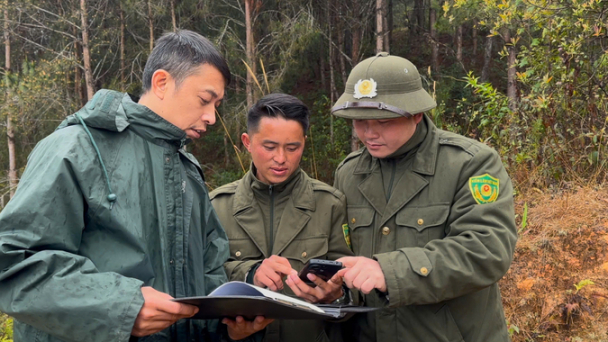
(VAN) With only a smartphone, members of the Muong La Nature Reserve can collect all patrol data, from photos to statistics, thanks to SMART.

(VAN) The emission-reducing rice farming model achieved a profit of more than VND 40 million per hectare, an increase of VND 10 million compared to the traditional production practices of farmers.
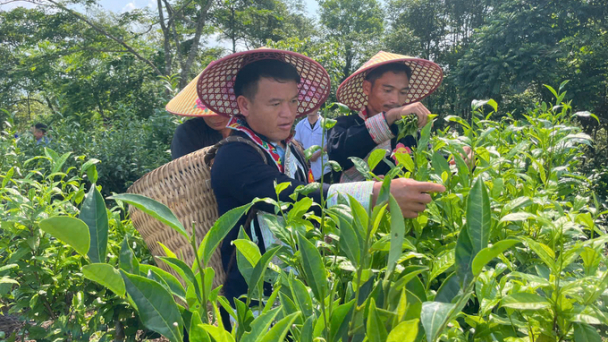
(VAN) Bat Xat District (Lao Cai) is looking to preserve the ancient Shan tea variety. Locals are cultivating seeds from healthy, high-yield Shan tea trees aged 10 years or older to expand production.
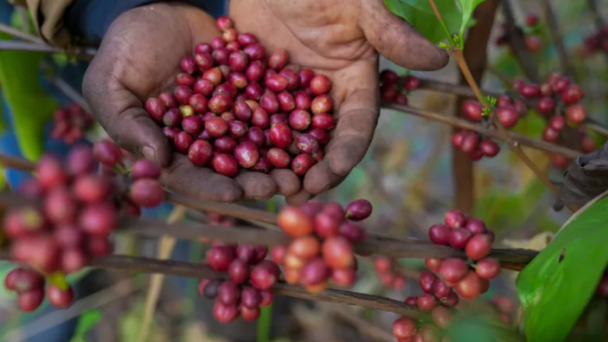
(VAN) Coffee made from excelsa tastes sweet — unlike robusta — with notes of chocolate, dark fruits and hazelnut. It’s more similar to arabica, but generally less bitter and may have less body.
/2025/03/03/4835-3-154232_702.jpg)
(VAN) Currently, farmers in Phu Yen province are focusing on disinfecting and cleaning barns in order to repopulate favorably and ensure disease safety.

(VAN) Khanh Hoa Province's veterinary authorities advise local farmers to fully vaccinate their livestock as a crucial measure to prevent disease outbreaks and promote effective repopulation.
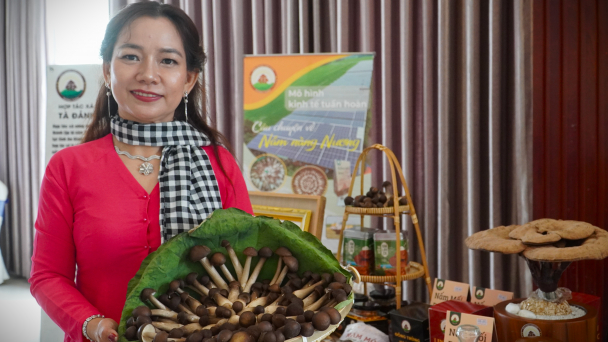
(VAN) Turning waste into resources and integrating solar power, a medicinal mushroom cultivation model run by a woman in An Giang not only reduces costs but also generates a sustainable source of income.